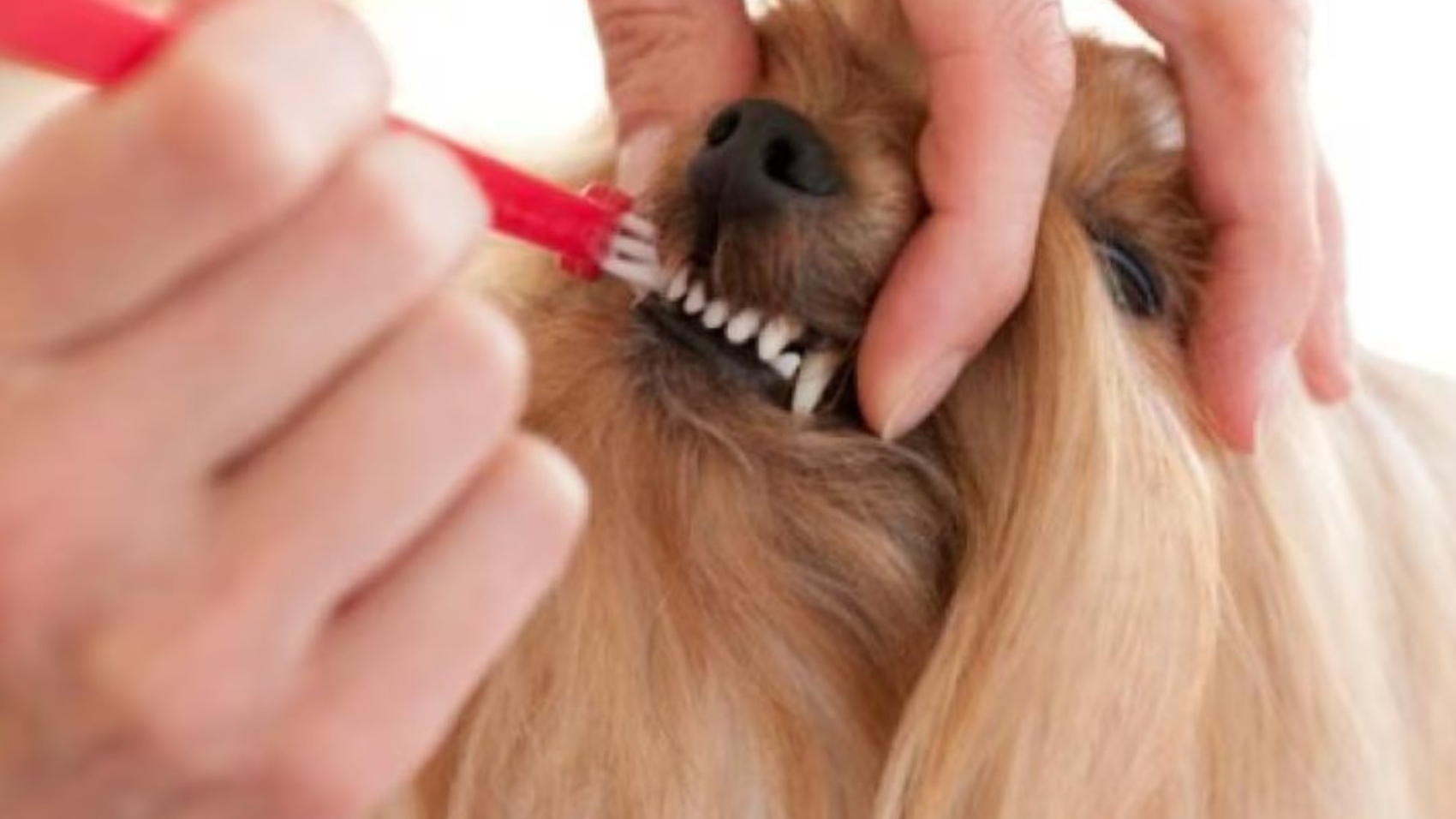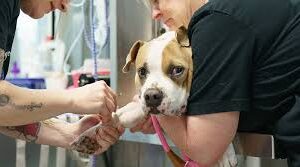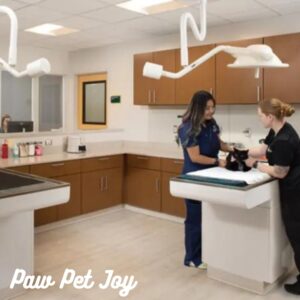Dog Dental Aiming for optimal dental health, Here are seven essential dog dental care tips to help ensure your dog teeth stay healthy and strong.
Dog dental among the various aspects of canine, dental care is often overlooked despite its critical importance. Proper dog dental care not only ensures a sparkling smile but also prevents a multitude of health issues. This comprehensive guide explores the significance of dog dental care, providing valuable tips and guidelines for maintaining your dog’s oral hygiene.

Understanding the Importance of Dog Dental Care
Dog dental care is a crucial aspect of overall pet health. Poor dental hygiene can lead to various health problems, including periodontal disease, bad breath, and tooth loss. More alarmingly, dental issues can also contribute to systemic health problems affecting the heart, kidneys, and liver. Regular dental care can prevent these complications and enhance the quality of life for your pet.
7 Ways To Keep Your Dog’s Teeth Clean and Healthy:
- Brush Your Dog’s Teeth
- Schedule a Professional Dental Cleaning
- Incorporate Dog Dental Chews
- Try Dog Water Additives
- Give Your Dog a Dental Toy
- Try Dental Wipes
- Ask Your Vet about Dog Dental Food and Food Additives
-
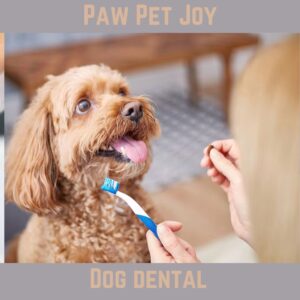
Dog dental
Dogs need their teeth brushed to remove food particles and bacteria that can accumulate on their teeth and gums. Without regular brushing, this build-up can lead to bad breath, gum disease, tooth decay, and even tooth loss.
It’s important to use a toothbrush and toothpaste that are specifically designed for dogs. Human toothpaste can be harmful to dogs if swallowed, so be sure to choose a dog-friendly toothpaste.
When brushing your dog’s teeth, be gentle but thorough. Use a soft-bristled toothbrush and gentle circular motions to clean all surfaces of your dog’s teeth. Focus on the outside surfaces where plaque and tartar tend to accumulate the most. Don’t forget to brush along the gum line as well, as this is where bacteria can hide and cause inflammation.
If your dog is new to tooth brushing, it’s important to introduce them to the process gradually. Start by simply getting them used to having their mouth touched and gradually work your way up to brushing their teeth. Be patient, and reward your dog with treats and praise to make the experience positive for them.
You should aim to brush your dog’s teeth at least a few times a week, if not daily. Consistency is key when it comes to maintaining your dog’s dental health, so make it a part of your regular grooming routine. If you’re unsure how often you should be brushing your dog’s teeth, be sure to consult with your veterinarian for personalized recommendations.

.Schedule a Professional Dental Cleaning
Professional dental cleanings for dogs typically involve a thorough examination of their teeth and gums, followed by the removal of any tartar or plaque that has accumulated. This process is usually done under anesthesia to ensure that the cleaning is as thorough as possible and to prevent any discomfort for your pet.
During the cleaning, your veterinarian will also check for any signs of dental disease, such as loose teeth, bleeding gums, or bad breath. If any issues are found, they will be able to address them promptly, which can help prevent further complications down the line.
Professional cleanings allow your veterinarian to reach areas of your dog’s mouth that are difficult to clean at home, such as below the gum line. This can help prevent the buildup of bacteria that can lead to more serious oral health problems.
It is recommended to schedule a professional dental cleaning for your dog at least once a year, though some dogs may require more frequent cleanings depending on their age, breed, and overall oral health. Your veterinarian will be able to recommend a schedule that is best suited for your pet.
Scheduling a professional dental cleaning for your dog is an important part of their overall healthcare routine. It can help prevent painful dental issues, improve their breath, and contribute to their overall health and well-being.
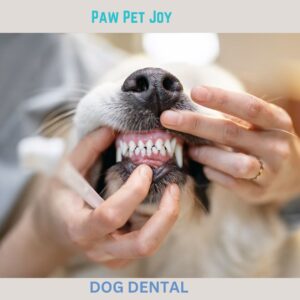
Incorporate Dog Dental Chews
One of the best ways to maintain your dog’s dental health is by incorporating dental chews into their daily routine. Dental chews are specifically designed to help clean your dog’s teeth and freshen their breath. They come in a variety of shapes, sizes, and flavors to cater to your dog’s preferences.
When it comes to choosing dental chews for your dog, it’s important to opt for products that are safe and effective. Look for dental chews that are approved by veterinary professionals and are specifically formulated to reduce plaque and tartar build-up. Avoid giving your dog regular treats or chews that are not designed for dental health, as they may not have the same benefits.
Dental chews work by promoting chewing, which helps to scrape away plaque and bacteria from your dog’s teeth. This action also stimulates saliva production, which can help neutralize acids in the mouth and prevent cavities. Additionally, some dental chews contain special ingredients such as enzymes or abrasive textures that can help further clean your dog’s teeth and freshen their breath.
It’s important to supervise your dog while they are chewing on dental chews to ensure they are not eating too quickly or swallowing large chunks. Some dogs may try to gulp down the chews without properly chewing, which can be a choking hazard. Make sure to choose an appropriate size chew for your dog’s breed and weight to prevent any accidents.
Incorporating dental chews into your dog’s daily routine can be a great way to promote good oral hygiene and prevent dental issues such as gum disease and tooth decay. However, it’s important to remember that dental chews are not a substitute for regular brushing and professional cleanings by a veterinarian.
If you’re unsure about which dental chews to choose for your dog, it’s always a good idea to consult with your veterinarian. They can recommend specific products that are suitable for your dog’s dental health needs and provide guidance on how to incorporate dental chews into your dog’s daily routine.

Try Dog Water Additives
Using dog water additives. These products are designed to be added to your dog’s water bowl, where they can help maintain their oral hygiene and keep their breath fresh. Dog water additives typically contain ingredients that help fight plaque and tartar buildup, reduce bacteria in the mouth, and freshen breath.
When choosing a dog water additive, it is essential to opt for one that is specifically formulated for dogs. Using human products may not be safe for your pet, as they could contain ingredients that are harmful to dogs if ingested. Look for dog water additives that are free from harmful chemicals, dyes, or artificial flavors.
To use a dog water additive, simply add the recommended amount to your dog’s water bowl according to the instructions on the product packaging. Make sure to change the water regularly to ensure that your dog is getting a fresh supply of the additive throughout the day.
Using a dog water additive can be a convenient and effective way to supplement your dog’s dental care routine. However, it should not be the only method you rely on to keep your dog’s teeth clean and healthy. It is still essential to brush your dog’s teeth regularly, provide them with dental chews or toys to help remove plaque and tartar, and schedule regular dental check-ups with your veterinarian.
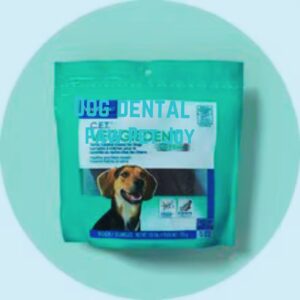
Give Your Dog a Dental Toy
When it comes to taking care of your dog’s dental health, giving them a dental toy can be a fun and effective way to keep their teeth clean and healthy. Dental toys are designed to help remove plaque and prevent tartar buildup by encouraging your dog to chew on them. They can also help to satisfy your dog’s natural urge to chew, which is not only good for their teeth but also helps to reduce stress and boredom.
When choosing a dental toy for your dog, it’s important to look for one that is specifically designed for dental health. These toys are often made of durable materials that can withstand your dog’s chewing habits and have textures that help to scrape away plaque and tartar. Some dental toys even have special features like bristles or ridges that can further help to clean your dog’s teeth as they chew.
Dental toys come in a variety of shapes and sizes, so you can choose one that is suitable for your dog’s breed and size. There are toys that are meant for small dogs, large dogs, and everything in between, so you’re sure to find one that is appropriate for your furry friend. You can also choose from different materials, such as rubber, nylon, or even natural ingredients like bones or antlers.
When introducing a dental toy to your dog, it’s a good idea to supervise them at first to make sure they are using it correctly and safely. Some dogs may be unsure of how to chew on a new toy, so you may need to encourage them or show them how to use it. You can also try applying a small amount of dog-safe toothpaste to the toy to make it more enticing for your dog to chew on.

It’s also important to regularly clean your dog’s dental toy to prevent bacteria buildup. You can wash the toy with warm, soapy water or even toss it in the dishwasher if it’s dishwasher-safe. Make sure to inspect the toy for any signs of wear and tear, such as missing pieces or sharp edges, and replace it if necessary to prevent your dog from accidentally ingesting any small parts.
Try Dental Wipes
One convenient option for keeping your dog’s teeth clean is to use dental wipes. Dental wipes are soft, moist cloths that are specially designed to help remove plaque and bacteria from your dog’s teeth and gums. They are easy to use and can be a great addition to your dog’s dental care routine.
When using dental wipes, it’s important to choose a product that is specifically made for dogs. Human dental wipes may contain ingredients that are harmful to dogs if ingested, so always opt for a product that is safe for canine use. Additionally, be sure to check the ingredients list to ensure that the wipes do not contain any harmful chemicals or substances.
To use dental wipes, simply wrap the cloth around your finger and gently rub it along your dog’s teeth and gums. Make sure to pay extra attention to the back teeth and gum line, as these areas can easily collect plaque and bacteria. You can use the wipes once a day or as recommended by your veterinarian.
Dental wipes are especially useful for dogs who are resistant to having their teeth brushed. Some dogs may be uncomfortable with a toothbrush in their mouth, but are more accepting of the gentle touch of a dental wipe. By incorporating dental wipes into your dog’s dental care routine, you can still effectively clean their teeth and gums without causing them any stress or discomfort.
While dental wipes can be a convenient option for cleaning your dog’s teeth, they should not be used as a substitute for regular professional dental cleanings. It’s still important to schedule regular dental exams for your dog to ensure that their teeth and gums are healthy. Your veterinarian can help to identify any dental issues early on and recommend the best course of action for maintaining your dog’s oral health.

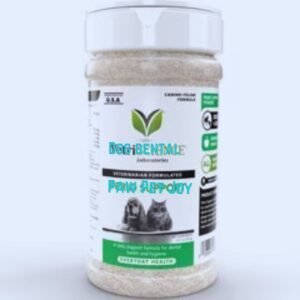
Ask Your Vet about Dog Dental Food and Food Additives
One way to ensure your dog’s teeth stay clean and healthy is by asking your vet about dog dental food and food additives. Many pet food manufacturers offer specially formulated dental diets that can help reduce plaque and tartar buildup on your dog’s teeth. These dental diets often contain ingredients like enzymes, antioxidants, and even special kibble shapes that can help scrape away plaque as your dog chews.
You can ask your vet about adding food additives to your dog’s meals that are specifically designed to promote dental health. Some examples include additives like water additives, which can help reduce plaque and tartar formation in your dog’s mouth when added to their drinking water. Dental chews and treats are another option that can help improve your dog’s oral health by scraping away plaque and tartar buildup as they chew.
When considering dental food and food additives for your dog, it’s important to consult with your vet to ensure that the products you choose are safe and effective for your pet. They can provide insight into which products are best suited for your dog’s specific needs and help you create a dental care plan that works best for them.
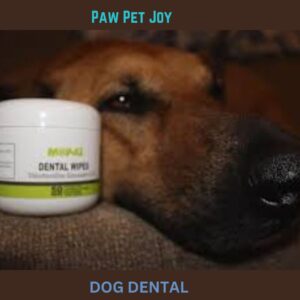
FAQs about Dog Dental Care
Q1: How often should I brush my dog’s teeth?
A: Ideally, you should brush your dog’s teeth daily. Regular brushing prevents plaque build-up and reduces the risk of dental diseases.
Q2: Can I use human toothpaste to brush my dog’s teeth?
A: No, human toothpaste contains ingredients that can be harmful to dogs. Always use toothpaste specifically formulated for dogs.
Q3: What are the best types of dental chews for dogs?
A: Look for dental chews approved by the Veterinary Oral Health Council (VOHC). These chews are designed to effectively reduce plaque and tartar.
Q4: How can I tell if my dog has a dental problem?
A: Signs of dental problems include bad breath, discolored teeth, swollen gums, drooling, and changes in eating or chewing habits.
Q5: Is professional dental cleaning necessary for my dog?
A: Yes, professional dental cleanings are essential for removing plaque and tartar build-up that cannot be addressed through home care alone.
Conclusion
Dog dental care is a vital component of overall pet health. By implementing a regular dental care routine, providing appropriate chews and toys, maintaining a healthy diet, and scheduling regular veterinary check-ups, you can ensure your dog’s teeth and gums remain healthy. Additionally, incorporating natural remedies can further support oral hygiene. Remember, a healthy mouth contributes to a happy, healthy life for your dog.
